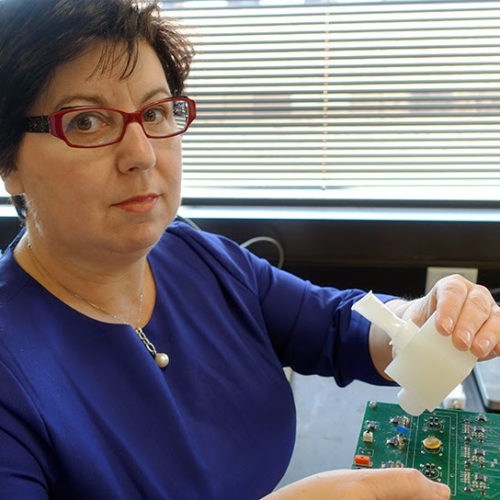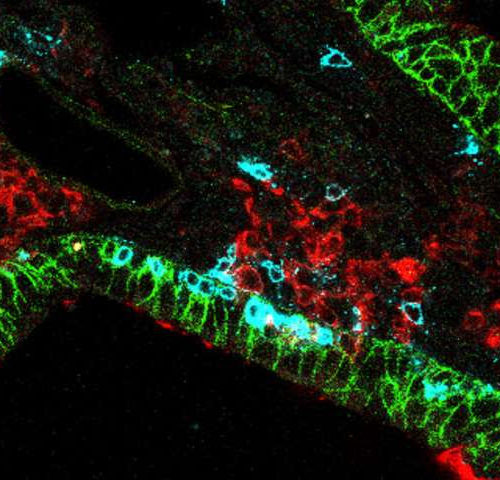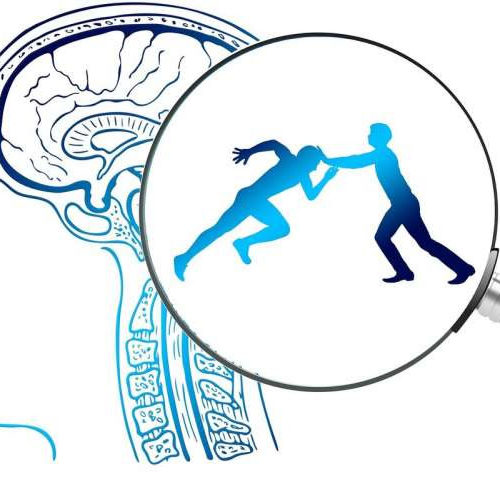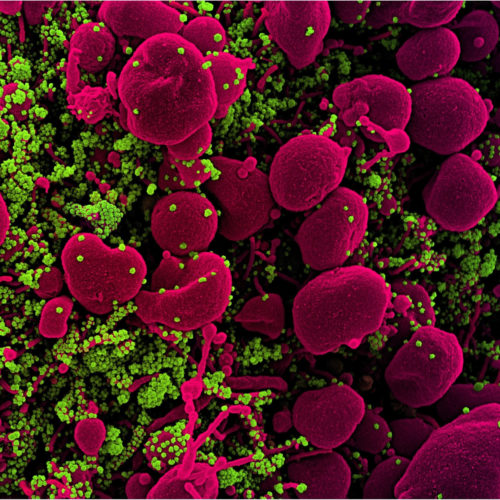Being able to tell, in a matter of seconds, whether someone is infected with the virus that causes COVID-19 would certainly help put a halt to the ongoing pandemic. Existing tests typically involve a deep nasal swab to obtain enough fluid sample, which has to be transferred to a laboratory machine for processing, with the...
Tag: <span>COVID-19</span>
How targeting killer T cells in the lungs could lead to immunity against respiratory viruses
by Salk Institute A significant site of damage during COVID-19 infection is the lungs. Understanding how the lungs’ immune cells are responding to viral infections could help scientists develop a vaccine. Now, a team of researchers led by Salk Professor Susan Kaech has discovered that the cellsresponsible for long-term immunity in the lungs can be...
Bald men at higher risk of severe case of Covid-19, research finds
Researchers suggested that baldness should be considered a risk factor, dubbing it the ‘Gabrin sign’ By Jennifer Rigby 4 June 2020 • 8:33pm Bald men may be at higher risk of suffering from severe Covid-19 symptoms, emerging evidence suggests. The link is so strong that some researchers are suggesting baldness should be considered a risk...
Research shows you can’t tell if a person is sick by the sound of their cough
by Bob Yirka , Medical Xpress A small team of researchers at the University of Michigan has found that it is not possible to correctly identify illness in a person simply by listening to them cough. In their paper published in the journal Proceedings of the Royal Society B, the group describes an experiment they...
COVID-19’s deadliness for men is revealing why researchers should have been studying immune system sex differences years ago
Reports show that the mortality rate among men with COVID-19 is higher than women. Marco Mantovani/Getty Images Email Twitter3 Facebook299 LinkedIn Print When it comes to surviving critical cases of COVID-19, it appears that men draw the short straw. Initial reports from China revealed the early evidence of increased male mortality associated with COVID. According...
THICKER BLOOD MAY EXPLAIN ODD COVID-19 BLOOD CLOTS
After noticing unusual blood clotting in many patients diagnosed with COVID-19, doctors believe there may be a connection to the thickness of their blood, known as hyperviscosity, with inflammation and clotting. “IT HAS BEEN A MYSTERY WHY SO MANY PATIENTS WITH COVID-19 HAVE HAD ATYPICAL BLOOD CLOTS.” “It has been a mystery why so many...
18.2 million at increased risk of severe COVID-19 uninsured or underinsured: Harvard study
Racial minorities who are most likely to be inadequately insured against the costs of illness among those at increased risk of severe complications from coronavirus Even before soaring unemployment caused millions of Americans to lose their health insurance, 18.2 million individuals at increased risk of severe COVID-19 were either uninsured or underinsured, according to a...
Repetitive negative thinking linked to dementia risk
by University College London In the study of people aged over 55, published in Alzheimer’s & Dementia, researchers found ‘repetitive negative thinking’ (RNT) is linked to subsequent cognitive decline as well as the deposition of harmful brain proteins linked to Alzheimer’s. The researchers say RNT should now be further investigated as a potential risk factor...
Blood group type may affect susceptibility to COVID-19 respiratory failure
By Sally Robertson, B.Sc. A group of over 120 researchers from various institutions across Europe has performed the first genome-wide association study to reveal host genetic factors that may contribute to respiratory failure in cases of coronavirus disease 209 (COVID-19). The authors say the genetic variants they have identified could help guide further research into...
Haima Therapeutics licenses synthetic platelet technology from CWRU for hemostatic therapy
Haima Therapeutics has executed an exclusive license agreement with Case Western Reserve University to research, develop, and market artificial platelet technologies to treat patients with various bleeding disorders. The core technologies were developed in the laboratory of Professor Anirban Sen Gupta, a pioneering researcher in platelet-inspired technologies in the Department of Biomedical Engineering at the...







